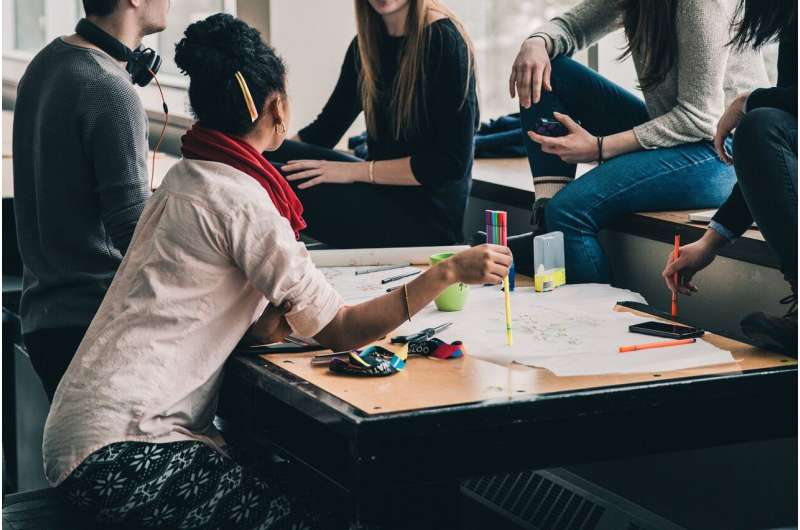This article has been reviewed according to Science X's editorial process and policies. Editors have highlighted the following attributes while ensuring the content's credibility:
fact-checked
peer-reviewed publication
trusted source
proofread
Count your blessings: It often happens when others help, not self-achieved

If you focus on overcoming life's barriers rather than the blessings that make life easier, you're not alone.
A new University of Michigan study indicated that people aren't always good at noticing the advantages they enjoy compared to the disadvantages they overcame. However, they are significantly better at noticing others—such as friends, family and mentors—who helped them reach their goals.
"There is a social norm that encourages people to acknowledge the help they receive from others," said Julia Smith, a recent doctoral graduate in psychology from U-M and the study's first author.
Smith and colleagues at Columbia University and Cornell University analyzed seven studies—which involved more than 1,500 participants—to determine how people viewed certain life advantages that command their attention. In some studies, the researchers examined if people felt obligated by social norms to those who helped them move forward in life. Another analysis focused on whether interpersonal advantages are moderated by the strength and salience of a social norm to do so.
In the studies, researchers found that not all advantages are treated equally. People look favorably on others who push them forward in life.
"The tendency to notice and acknowledge the benefits that come from a person's relationship is due, at least in part, to a social obligation to do so—a norm that does not apply to privileges that come from non-interpersonal life circumstances," Smith said.
The findings also showed that environments with more cooperative norms encourage people to express more gratitude to helpful others, whereas more competitive environments tend to encourage people to talk more about the hardships they've endured.
In general, people's tendency to attend to the benefits they receive from others suggests that organizations and businesses interested in earning good favor of the public should "put a face on" benefits they hand out, the researchers noted. For example, frequent flyers may be more pleased to learn that they have been upgraded to business class by a flight attendant than by a text message.
And, if you have trouble feeling gratitude in your daily life, these studies suggest that thinking about other people who have aided you might be especially helpful because helpful others easily come to mind.
The study, published in Personality and Social Psychology Bulletin, was co-authored by Shai Davidai, assistant professor of business at Columbia, and Tom Gilovich, professor of psychology at Cornell.
More information: Julia M. Smith et al, The Privileges We Do and Do Not See: The Relative Salience of Interpersonal and Circumstantial Benefits, Personality and Social Psychology Bulletin (2024). DOI: 10.1177/01461672241247083
Journal information: Personality and Social Psychology Bulletin
Provided by University of Michigan




















